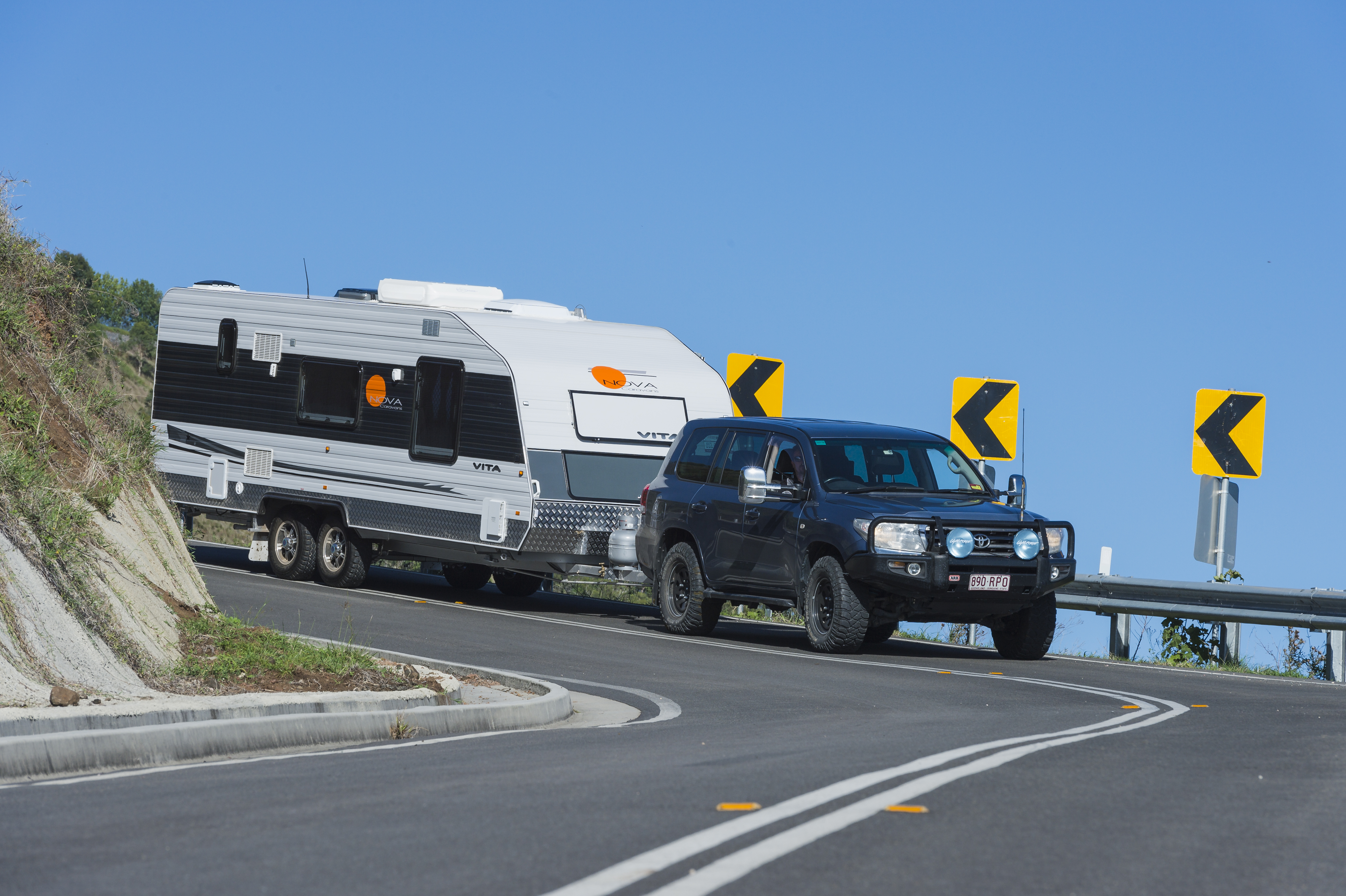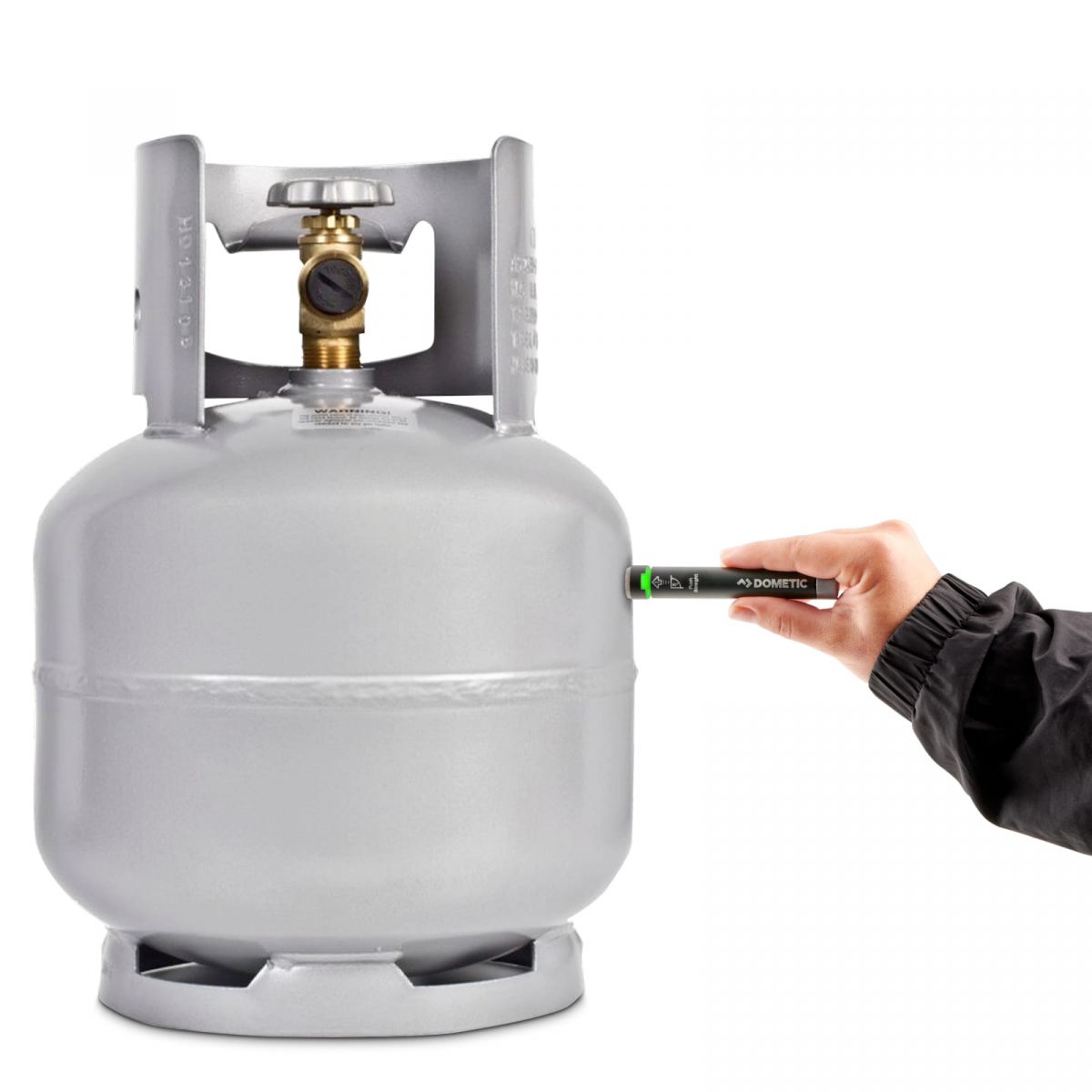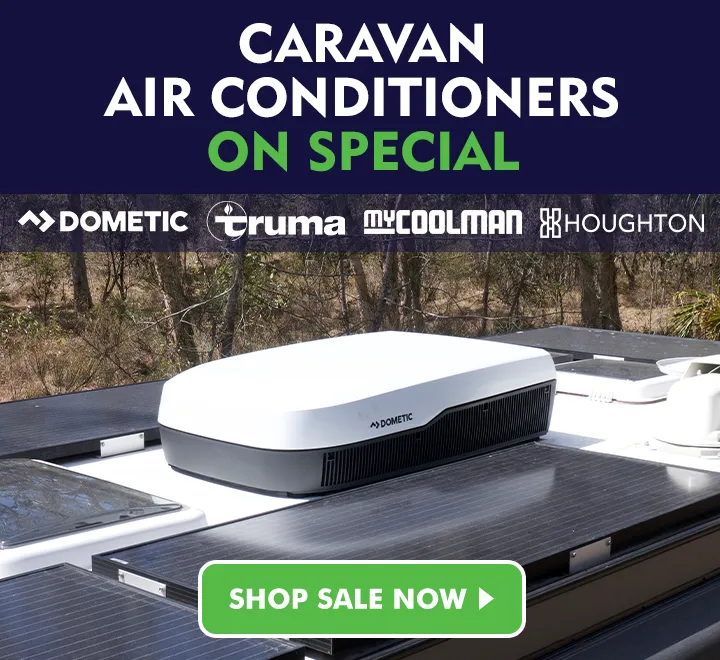Heading off on a road trip? Before you hit the road, make sure your RV is ready for whatever the Australian outdoors can throw at it.
One of the most important lessons you’ll learn about RVs is that it’s worth doing regular maintenance. Fail to keep your rig in check and you’ll regret it later on in your trip when things start going wrong and you’re far from home.
Use our top tips to get your rig ready for its first road trip of the season:
Suspension & Wheel Bearings
The suspension is something that your mechanic will take care of. But there are some easy checks you can do between services.
Crawl under your vehicle and check for any signs of wear and tear. Look for cracks, broken springs and hangers. Use your spanners to check all bolts are tight and secure. Then, squirt some grease on the suspension nipples.
Next, check your bearings. You’ll need to jack up the side of your RV and spin the wheels by hand. Can you hear any gritty or grinding noises? If yes, something is not right. Ask your mechanic to take a look.
Finally, give the wheels a shake from side to side. If they move easily, you’ll need to give it some attention. Again, your mechanic is the best person to ask.
Tyres
Your tyres go through a lot on trips around Australia, especially if you plan to go off-road. So, you need to be confident your tyres will handle all the conditions ahead. If your RV has been sitting around for while between trips, look out for any tyre flat spots.
Next check inflation pressures and ensure there are no hairline cracks and fractures in the side walls. If you’re unsure, ask your mechanic for help. Be sure to check your spare tyres too!
Need an air compressor for the road? Check out our 4x4 air compressors.
Brakes
Always check your brakes between services. Here’s what you need to do: crawl under your RV to check all wires are in good condition. Retighten any bolts and nuts using a spanner and ensure there is no movement at all. If something moves, or you’re unsure, get professional help. You don’t want to risk dodgy brakes!
Next, check your brake lights. Connect your RV to your tow vehicle and ask someone to check the lights are working. Then, check the breakaway system by activating the connection while stationary.
We highly recommend a brake controller, which is mounted to your tow vehicle (usually your dash) and sends an electric current to the electric brakes in the caravan to make them operate. Check out the Elecbrakes Brake Controller, an electric brake controller designed to suit most common trailer braking applications.
.jpeg)
12V System or Generator
What are you relying on for power while touring? Whether it’s a 12V system, generator, or both, you need to make sure they’re performing well so you aren’t caught without power.
Do a health check of your batteries. If your battery doesn’t have an internal battery management system (BMS), we recommend buying a battery monitor for your next trip. Check out the Enerdrive EPRO Plus – it’s one of the most popular models on the market for a reason! is one of the most popular models on the market. Looking for something with more features? Browse the Simarine Battery Monitors.
Next, check your solar panels. The more stuff that covers your panels, the less efficient they will be.
If you’re using a generator system for your power, a little generator maintenance goes a long way. This will maximise the life of the generator, help you stay safe and save you money in the long run.
A few things to check include the engine oil, spark plug, air filter, muffler and spark arrestor. Check out Pat Callinan's top 5 checks for maintaining your generator below:
Caravan Fridge
Some quick maintenance can work wonders in making sure your fridge functions at its efficient best and you avoid any annoying breakdowns. Check your door locking mechanism is working properly, so you don’t get a build-up of frost inside the fridge. Put a piece of paper between the door and the fridge and close the door. Pull at the paper and if you feel resistance, you know the refrigerator door closes properly. If you feel no resistance, you need to fix the door closing mechanism.
Before you set off, let your fridge run for a day so you can check it is working well. It may be worth having it serviced before you hit the road.
Air Conditioner
Clean all air-conditioner filters and vents before you leave home. This will help ensure your unit is working at its peak efficiency. If you’re running your air-con from a generator, check it works before your trip.
Windows, Seals & Hatches
Are all your windows, doors and hatches sealed properly? You don’t want to risk dust getting into your RV. Check for any holes in fly-screens and ensure the windows and doors seal completely when closed. Remember to check your skylight and hatches too. Exposure to UV and wear and tear can cause damage to these features over time.
Awning
Give your caravan awning a good clean before storage to prevent mould and mildew from growing. We recommend using warm, soapy water. Once clean, leave the awning fully extended to dry properly before storage. Otherwise, mould will grow anyway, and cleaning was a waste of time!
Now, extend the awning and check the fabric is in good condition. Do all mechanisms work easily? Check the manufacturer’s instructions for advice on how to lubricate the joints.
Water Tanks
Always rinse your water tanks thoroughly before refilling them after storage. It’s easy for bacteria to breed in your tank if you forgot to drain and clean the tank properly before storage. Flush them out with an appropriate cleaner a week or so before you leave home.
Check that any filters are in date and in good working order. Next, pay attention to any fittings, connections, pumps and pipes. Run water through the system. Can you see any leaks? Be sure to replace the parts in time.
Gas
Time to test your gas appliances. Turn each of them on individually for a short time to see if everything is working properly. Check the regulator is providing gas without any issues.
If you find any issues, call a qualified gas fitter. They will be able to inspect and fix any problems and provide a certificate of compliance.
Pro Tip: Don’t run out of gas in the middle of the bush. Pack a gas level check in your kit so your gas bottle never runs dry on the road.
That’s all folks!
The best tip we can give you is to be prepared. Don’t wait until the last minute to sort out your RV. If you find things need fixing, it will only delay your adventure. If you’ve completed this RV preparation checklist, you can hit the road confident that you’ve done everything you need.
Remember, when you get home, take some time to prepare your vehicle for storage.
Bon voyage!
DISCLAIMER* Please note, this advice is general in nature and we strongly recommend consulting the product manual and where relevant, a professional installer.


.jpg)






